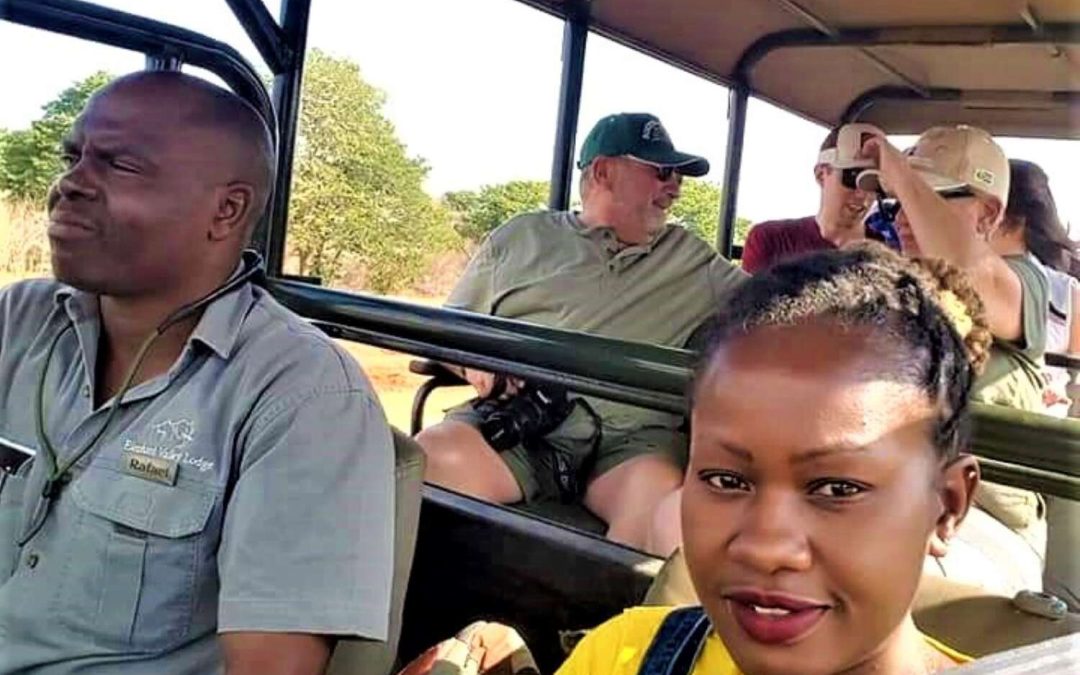Running a tour firm in a foreign country
Maridadi Tours founder Sasha Seraphine Mbote (right) with some of her clients during a tour of the Serengeti National Park in Tanzania. Photo | Pool | NMG
As a globetrotter, Sasha Seraphine Mbote was the to-go-to person whenever her friends wanted to find the best hotels and tour guides whenever they were traveling. It was fun offering invaluable tips that ensured that her friends, who over time referred their acquaintances to her as well, had a pleasant time during their trips.
Then as the referrals increased, she decided to take the trip of her lifetime. She quit her job as a spa manager and turned what she did into her business.
“When problems arose with their bookings, they (friends and acquittance) would come back to me. I realised I was spending a lot of energy and so decided to open a tour company, says the Maridadi Tours co-founder who was living in Tanzania in 2015 when she took the entrepreneurial leap of faith.
Being a foreigner in the country, she had to partner with local business people to successfully register the company. She linked up with two women and opened the first office in Zanzibar.
They have since added an office in Kenya in partnership with another company she did not disclose. Similarly, they have online branches working hand in hand with other tour companies in Africa and have plans to open physical offices once the industry recovers.
Market target
“We market Africa as a whole because I only travel around Africa to build the economy. We cannot be booking Dubai and Europe and expect Africa to grow while we fund other nations,” she says adding that they sell tour packages mainly to Kenya, Uganda, Rwanda, Tanzania, Zambia, Botswana, Zimbabwe, Namibia, South Africa, and Ghana.
Just as the business was taking off, she learned her first business lesson. The partnership fell apart and she had to start alone all over again.
Also read: Facebook owner fires 11,000 staff, extends hiring freeze
“I have learned that when operating a business in a foreign country, you must choose your partners wisely. If you fall into the wrong partnerships, be ready for massive trials. Once I started getting big booking numbers, the partners turned against me and almost withdrew clients’ money,” she says, adding “When partnering in a foreign country, do everything through a lawyer, don’t just trust anyone.”
The second lesson she offers is though sometimes one may fall head first and lose everything, one ought not to give up since resilience pays in the end.
She slowly built back the company and over time it has attracted a unique clientele of black people in the diaspora who are coming to learn about their African roots.
“They always insist I have to book them cultural tours so that they can learn about us. This has also helped me learn a lot about our real history. Our travels are a free history education through interaction with each other. We just realise by connecting that we were lied to in our schools,” she adds.
Product differentiation
To make her company stand out, she has had to differentiate her products. Instead of relying on the bush and beach products that are the staple of every other tour firm, she digs out and offers the unexplored.
“In Africa, we have a lot of less visited destinations. Our marketing agents should stop selling safaris and oceans only. In Namibia and Kenya, I sell sand dunes which a lot of people have no idea about. Cultural tours are also not only about the Maasai people. For instance in Tanzania, we have the Hadzabe indigenous people who live in the forest and eat from the forest. There is a lot that is not being told about this continent,” she says.
Did she need massive capital when she was starting the business?
“Apart from registration fees to the government, I started very little. People think you must own tour vans to start, but you can start by hiring and then acquire yours as you go,” she says.
Also read: SOMORIN: Raising private capital for adaptation projects in Kenya
And the same goes for marketing. She says, “I have grown through social media only. I am in many international Facebook travel groups which have been my main source of clients.”
The company serves across the budget spectrum. For instance, they book their low-budget clients to Airbnb, and for their high-end clients hiring helicopters for them and personalising their itineraries to suit their needs.
Seraphine says the biggest challenge so far has been the Covid-19 pandemic. “Covid literally brought us to our knees, but we thank God the skies are opening up,” says the entrepreneur who had to cut her workforce from 20 to five for business survival.
A piece of advice that she would like to give to those who want to venture into business, and not only in tourism is that, “you are better off selling tomatoes by the road side than partnering with the wrong people, also if it is partnership, make sure your team understands the vision, otherwise it is all in vain.”
She also urges people to take courses if they have to, and not to start any business blindly, just because one has capital.
“That was my biggest mistake – starting something I had not taken a course in. I jumped into the business with my managerial skills and thought everything would play out the same, how wrong was I. I don’t regret anything though; mistakes have been my best school and a guard for the future,” says Seraphine.
Her future plan is to empower the youth to ensure they are equipped with the right tools for the fast changing labour market.
She notes that the future of this continent depends on skills. “I love the way Tanzania adds farm tourism in our trips and we take our clients to the farms to learn about our produce and this keeps the youth busy instead of waiting for politicians to create jobs for them. In Tanzania, you will rarely see a jobless youth waiting for manna from heaven. They are busy making money straight from their farms and this is not taxed, so it helps the farmer make money right from their farms.”
This content was originally published here.

